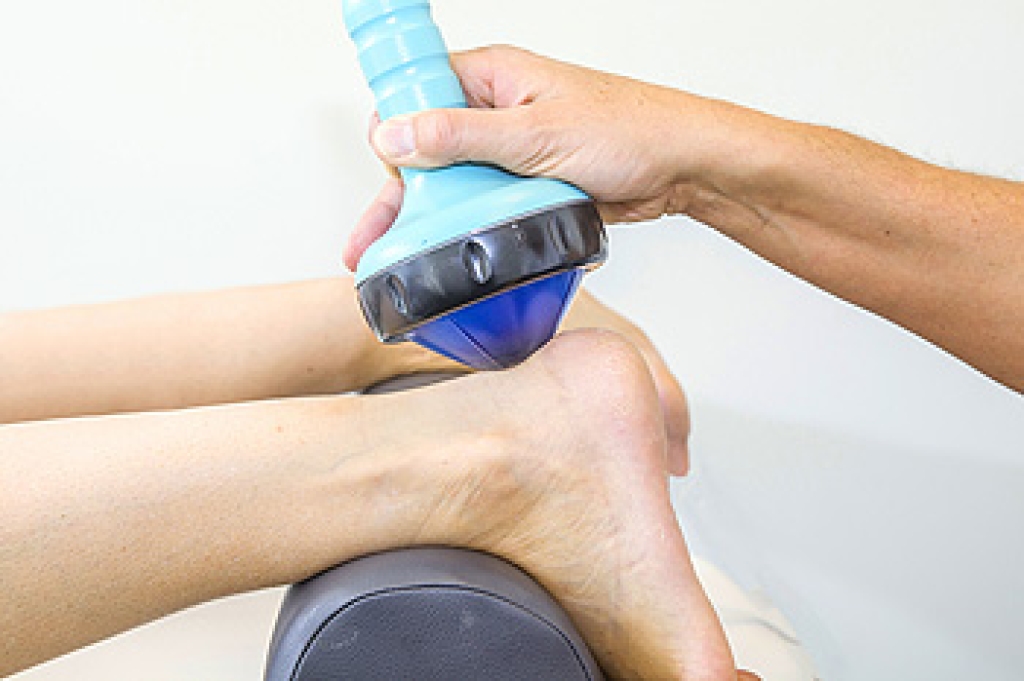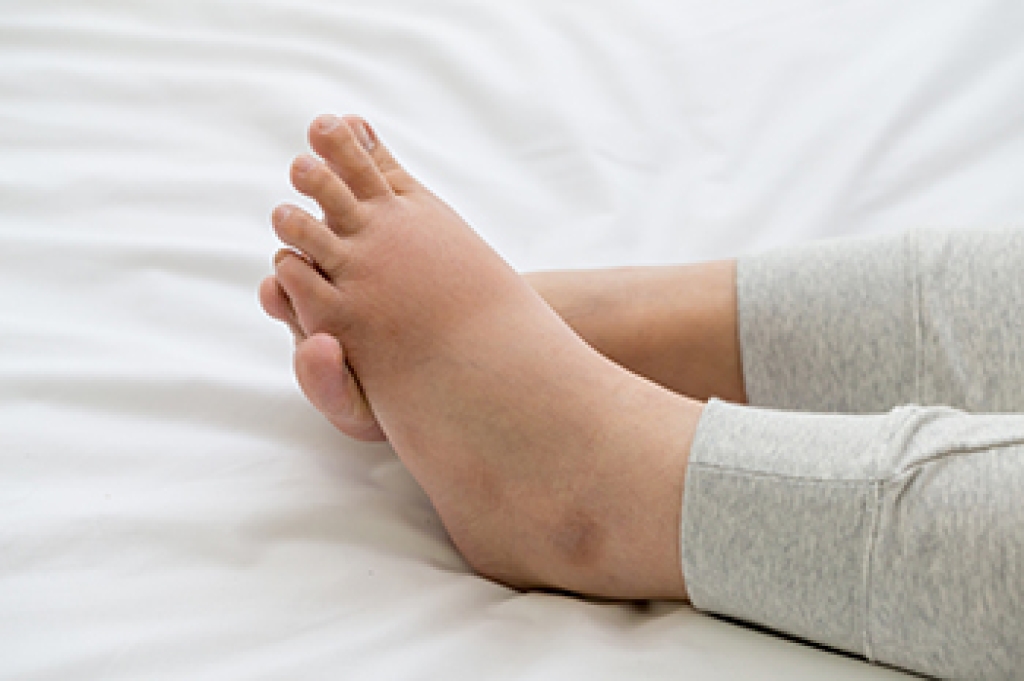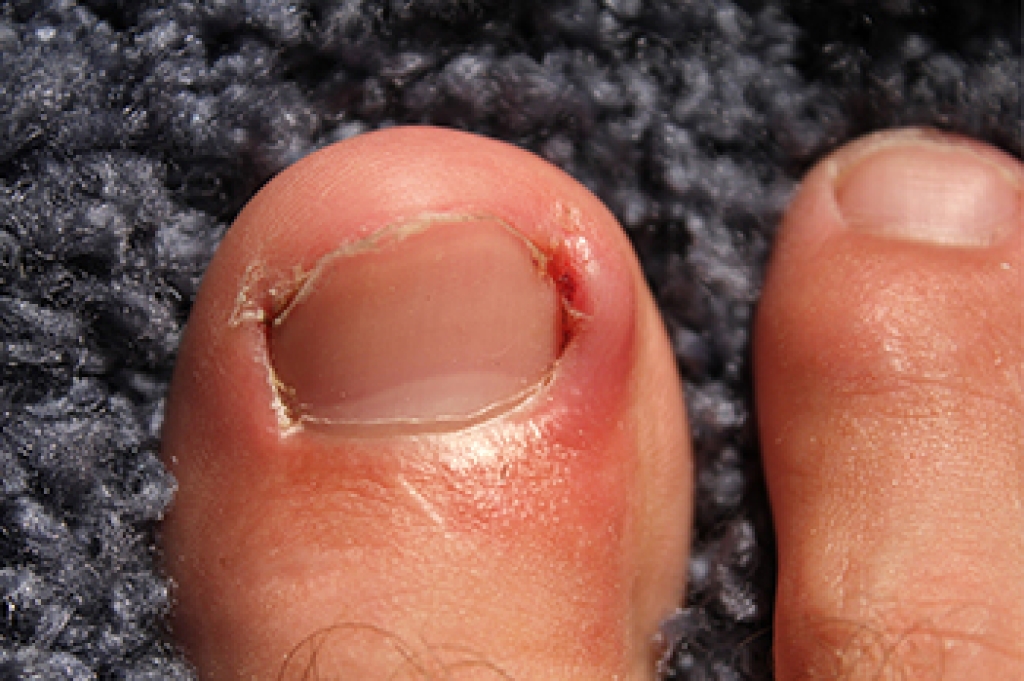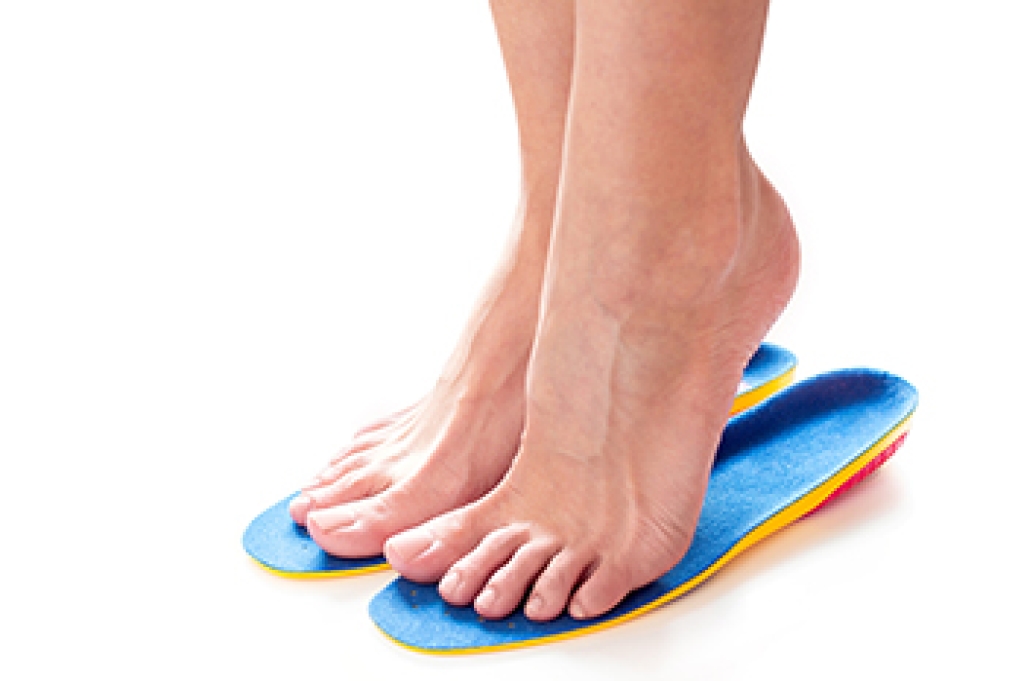
Shockwave therapy is a potential treatment for chronic foot pain problems, including plantar fasciitis and calcific tendonitis. It uses shockwaves delivered to the body to stimulate healing in affected tissues. There are high-energy and low-energy forms of this therapy. Low-energy shockwave treatment involves a series of sessions that are not very painful. In contrast, high-energy shockwave treatment is typically done in one session and can be quite painful, often requiring anesthesia. This therapy induces microtrauma to the affected tissue, triggering a healing response, increased blood vessel formation, and nutrient delivery to the area. It can relieve pain and promote tissue repair. Shockwave therapy is noninvasive, making it an attractive option for more challenging conditions. There are studies that support its effectiveness, particularly for calcific tendonitis and plantar fasciitis, with minimal reported complications. While more conservative measures may be tried first, it is considered a safe alternative to surgery for patients with chronic plantar fasciitis who have not responded to standard treatments. If you are at a point where more traditional treatments have not relieved pain from chronic foot conditions and surgery is being considered, it is suggested that you make an appointment with a podiatrist to discuss whether shockwave therapy might be a possible alternative for you.
Shockwave therapy is a treatment commonly used to treat various injuries and conditions, particularly plantar fasciitis in the feet. To learn more, consult with one of our doctors from Favor Foot Ankle Leg & Wound Center. Our doctors can provide the care you need to keep you pain-free and on your feet.
Shockwave Therapy
Shockwave therapy is a new treatment option designed to treat bone conditions such as tennis elbow, shoulder pain, and others. Shockwave therapy uses high intensity sound waves that are directed to the affected tissues of the body with pinpoint accuracy. The effects are very beneficial, leading to a production of collagen fibers, eliminating inflammation.
Who Benefits from Shockwave?
Shockwave is recommended for patients suffering from heel pain and associated problems. Heel pain is a common condition which can be caused by obesity, overexertion, and spending a substantial amount of time on hard floors with your feet exposed and unsupported.
Fast and Easy
The therapy is actually a simple process that can leave patients feeling better the very next day. Shockwave therapy is not as dramatic as it sounds. It enables more blood flow to effected areas, addressing the source of the problem and allowing treatment to last for a long time.
Treatment & Recovery Time
Shockwave treatment will enable your feet to recover quickly. This is especially important since surgery is not required. It is cost effective and does not require the use of anesthesia. This treatment is a better option to surgery, since it is proven safe.
If you have any questions, please feel free to contact our office located in South Amboy, NJ . We offer the newest diagnostic and treatment technologies for all your foot care needs.




